How can I convert this PostgreSQL code to SQL Server ?
select
countries.title,
(select array_to_json(array_agg(row_to_json(t)))
from postcodes t
where t.country_id = countries.id) as codes
from countries
My initial problem is that I need to select complete master table and with each row all details.
Countries:
id title
1 SLO
2 AUT
PostCodes:
id country_id code title
1 1 1000 Lj
2 1 2000 Mb
3 2 22180 Vi
4 2 22484 De
Desired result:
1 SLO 1000;Lj|2000;MB
2 AUT 22180;Vi|22484;De
Not:
1 SLO 1000 Lj
1 SLO 2000 Mb
2 AUT 22180 Vi
2 AUT 22484 De
The best solution would be using FOR JSON, but unfortunately I need support for 2008 or at least 2012.
With left join all master data are duplicated for detail count, but I do not want to do this. Even worse it would be to select all countries and then call select on post_codes for every country in for loop.
